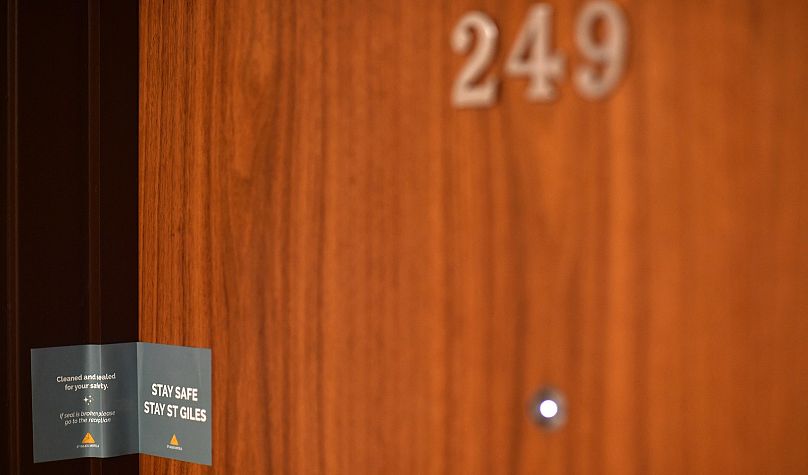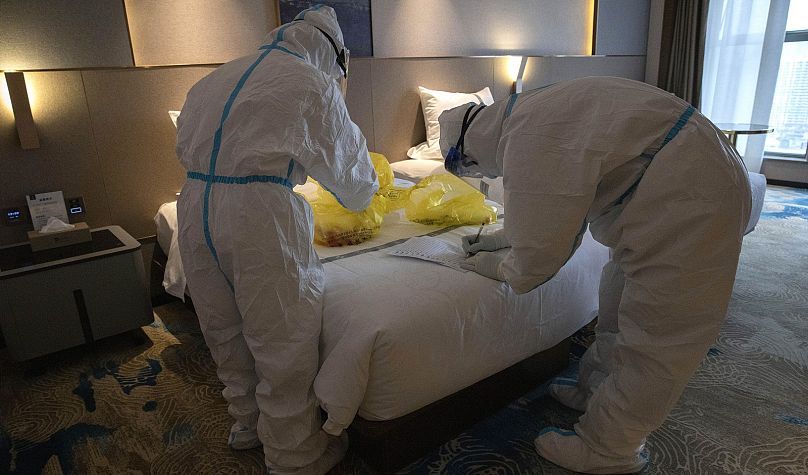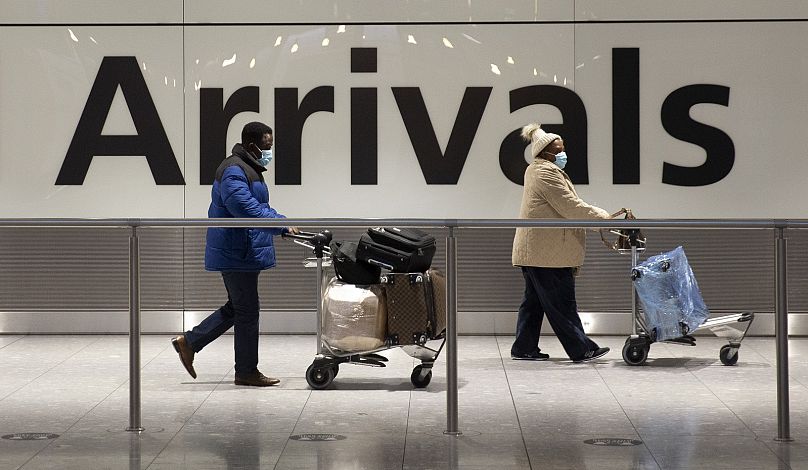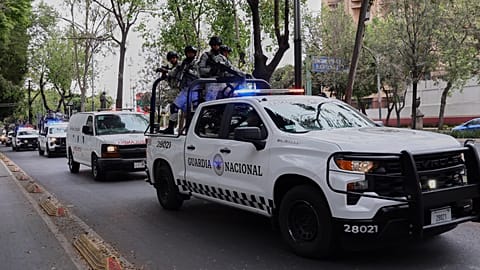Here's a summary of the quarantine hotel rules in different countries around the world.
Vaccines against coronavirus are providing some hope that international travel will kickstart again in the not-so-distant future. While travelling abroad is unlikely to reach pre-pandemic levels for some years, there is a sense that there's light at the end of the tunnel for the devastated travel industry.
 ADVERTISEMENT
ADVERTISEMENT
 ADVERTISEMENT
ADVERTISEMENT
In the meantime, for those that have a valid reason to travel, COVID-19 tests, thermal screening and quarantine periods have become as second nature as check-in and passport control queues. Countries around the world have different entry requirements to stop the potential spread of coronavirus but one common feature of travel in the last year has been the introduction of the 'quarantine hotel'.
While measures vary from country to country, travellers are generally expected to stay in their rooms at these facilities for the duration of their quarantine period, no mixing with other hotel guests, meals are delivered and COVID tests are implemented.
Here are the countries which require travellers to quarantine in government-approved facilities and how they work.
United Kingdom
The UK has belatedly become the latest country to enforce rules on quarantining in hotels, officially having come into force on February 15. Arrivals from 33 "red list" countries deemed to be high risk will need to stay at hotels that are part of a government scheme for at least 12 days with the £1,750 (€2,037) cost to be borne by the individual. Those arriving from these countries must also fly into five designated airports, including Heathrow and Gatwick. The UK government has even gone as far as to threaten passengers who try to avoid quarantine by lying about where they have travelled from with heavy penalties (including prison sentences of up to 10 years).
Australia
Countries in Asia and Oceania were some of the first in the world to enlist hotels as quarantine sites for incoming travellers. Since March 2020, arrivals in Australia have been required to enter quarantine in a hotel allocated by the government on the day they arrive for a fortnight, or if they refuse, 24 days or until they test negative after having a positive result at the airport. Arrivals are ferried from airports to their assigned hotel where meals are delivered to their room doors for the duration. Travellers are then invoiced for their stay on their departure with rates starting from AUS $3,000 (€1958).
New Zealand
New Zealand's response to the coronavirus pandemic has been held up as the gold standard, having had just 2,365 reported cases and 26 deaths from the illness. Part of its success was closing its borders early and instituting measures such as quarantine facilities for repatriated nationals and foreign travellers. Anyone arriving into the country must enter into a 14-day quarantine in a government-managed hotel or facility with daily checks carried out by health professionals. Before even booking your flights to New Zealand, travellers are required to register for a voucher while allocates you a room in a facility. As with most countries, there is a fee incurred: a flat rate of NZ$3,100 (€1887) per adult and NZ$475 (€289) for children over the age of three.
Israel
Israel has won plaudits for the speed at which it has been able to roll out its COVID-19 vaccination programme. At the time of publication, the country had inoculated more than a third of its population. That being said, the Israeli government has kept hotel quarantine rules in place on a rolling basis until at least March 9. Travellers are required to quarantine for 14 days or 10 days if they have two negative tests during that period. Certain groups are exempt from including children travelling alone, pregnant women and the elderly. Arrivals who have documentation that they've had both doses of a coronavirus vaccine in their home country must still also provide evidence of a negative test taken before departure and take another negative test on arrival to avoid quarantine.
China
China was the original epicentre of the virus, and the authorities there have been particularly stringent with their anti-COVID-19 measures. A ream of documentation - including health check declarations and negative coronavirus tests - is required before travel can be approved by a Chinese embassy or consulate. In any case, direct flights to China from many countries, like the UK, are still suspended. Similar to measures in place in Australia, the government allocates you a hotel to stay at on the day of your arrival. However, the quality of accommodation and food at the central government hotels vary widely with some only basic facilities, no aircon, fridges or internet connections. As with other countries, stays in quarantine hotels wrack up a charge of between RMB 4,200 (€536) and RMB7,000 (€894).
Singapore
Travellers who have been in the UK or South Africa up to 14 days prior to travelling to Singapore will be denied entry to the country. Those who are allowed in are required to undertake 14 days' quarantine in a government-designated hotel, which you must apply for before you arrive. As well as providing proof of a negative COVID-19 test 72 hours prior to departure, arrivals at Singapore's Changi airport are required to take another test and then a further test at the end of the quarantine period. During your stay, travellers are also fitted with an electronic band or smartwatch to make sure they are complying with the quarantine rules.
India
All travellers arriving in India from the UK, the Middle East, South Africa and Europe must enter compulsory institutional quarantine as mandated by the Indian government. They are also required to complete a self-declaration form 72 hours before they fly and undergo thermal screening and testing on arrival. As with most countries, hotel quarantine lasts for at least seven days and is at the expense of the traveller.
Qatar
Travel restrictions remain in place meaning that only those who are nationals or have residence permits are allowed entry into Qatar. Passengers arriving from "red zone" countries are required to carry out a self-funded, pre-booked quarantine for seven days at a government-approved hotel, undergoing a COVID-19 test on the sixth day. Depending on your point of origin, you will need to book to stay in designated hotels. For those arriving from the UK, South Africa, the Netherlands and Denmark, for instance, there are nine specific hotels in which you have book a quarantine package. For entry from other countries not on the "green list," there is a choice of 32 hotels available. As with most other countries, travellers are tested on arrival at the airport before they are transferred to their hotel.
South Korea
Quarantine hotels have been a longstanding part of South Korea's coronavirus response and has been particularly praised for the arrangements it has in place, being held up as an example from which other countries could learn from. As well as the now standard documentation prior to travel, all foreign arrivals are subject to mandatory quarantine in a government-run hotel. While travellers are not allowed to leave their rooms for 14 days, the level of service has been noted around the world, with facilities offering kits with essential items, providing good food as well as carrying out twice-daily health checks and offering counselling services. A daily charge of 120,000KRW (€89) applies.
Philippines
Entry into the archipelago is currently subject to restrictions, meaning only foreign nationals with long-term visas are being allowed into the country for the moment. However, those that are permitted entry are expected to have a booking at a government-approved hotel for 14 days which they will be transferred to by approved taxis or bus. While in quarantine at the hotel, they will undergo health checks and be required to take a COVID test on the sixth day of their stay.
Ireland
Ireland is a latecomer to the quarantine hotel concept but will be enforcing stays for all travellers arriving from a list of 33 countries deemed "high-risk" - including Brazil, South Africa and the UAE - from 26 March. Passengers arriving on the island will need to book a room for a 12-night stay in a government-approved hotel in advance. The cost of the stay is set at €1,875 for one person, with an additional charge of €625 if sharing with another adult. Those who fail to follow the new rules face a €2,000 fine or a month prison sentence.
Norway
The latest country to adopt the measure to stop a surge of new coronavirus cases, self-isolation in quarantine hotels will apply to all travellers arriving in Norway from 29 March. There are exemptions, including if you are a Norwegian citizen and your reason for travelling is deemed essential. In which case, you can self-isolate at home. You will be allocated a hotel by the municipality you are in (which will also arrange your transport) where on arrival, you will be offered a PCR. Even if you test negative, you'll need to complete the 10-day quarantine which is set at NOK 500 (€49) a night.
Every weekday at 21.00 CET, Euronews Travel brings you a story from somewhere different around the world. Download the Euronews app to get an alert for this and other breaking news. It's available on Apple and Android devices.




















